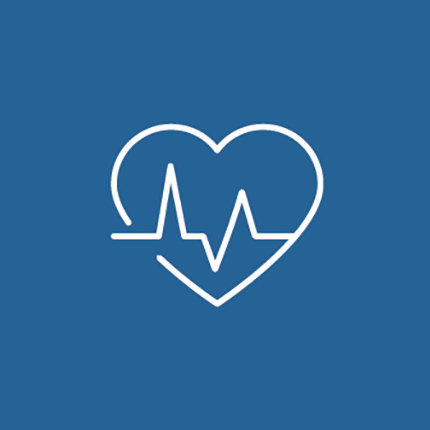Find a Cardiologist
What Is Pulmonary Hypertension?
Knowing how blood flows through your heart and lungs can be useful in understanding pulmonary hypertension.
A healthy and fully functioning heart receives oxygen-poor blood through the right ventricle then flows through the pulmonary arteries to the lungs, where the blood receives oxygen. From there, the oxygen-rich blood travels to the left ventricle through the aorta and into a maze of arteries throughout the body.
Pulmonary hypertension occurs when the pressure in the blood vessels that carry blood from the heart to the lungs is higher than normal. This condition can narrow and thicken the arteries which means the heart must work harder to pump blood into the lungs.
What Is the Main Cause of Pulmonary Hypertension?
There are two kinds of pulmonary hypertension. One is genetic and the other one is related to other medical conditions such as heart or lung disease. Some common underlying causes of pulmonary hypertension include sickle cell disease, pulmonary embolus, connective tissue disease, coronary artery disease, high blood pressure, cirrhosis, blood clots to the lungs and lung diseases like emphysema and chronic obstructive pulmonary disease (COPD). These diseases can damage, change or block the blood vessels of the pulmonary arteries.
Risk Factors of Pulmonary Hypertension
The following factors can increase a person's risk for developing pulmonary hypertension:
- Age - pulmonary hypertension can happen to anyone including children, but the risk goes up with age and is typically diagnosed between the ages 30 and 60
- Environment - exposure to asbestos or silica and infections caused by parasites such as schistosomiasis or echinococcus tapeworms
- Family history and genetics - Down syndrome, congenital heart disease and Gaucher disease are some of the most common genetic disorders that can increase your risk of developing pulmonary hypertension
- Lifestyle habits - use of illegal drugs and smoking
- Medicines - chemotherapy drugs such as dasatinib, mitomycin C and cyclophosphamide; treatment for depression and anxiety such as selective serotonin reuptake inhibitors; and weight-loss drugs such as fenfluramine and dexfenfluramine may increase your risk as well
- Other medical conditions - blood clotting disorders, chronic kidney disease, scoliosis, hepatitis B or C, cirrhosis, surgical removal of the spleen and thyroid diseases may trigger pulmonary hypertension
- Gender and ethnicity - pulmonary hypertension is more common among women, African Americans and non-Hispanics
How Do You Know When Pulmonary Hypertension Is Getting Worse?
The signs and symptoms of pulmonary hypertension are hard to recognize because they are common for many other medical conditions. Symptoms may start off with shortness of breath, hoarseness and fatigue then may get more severe such as the following:
- Pain on the upper right side of the abdomen
- Racing heartbeat or palpitations
- Chest pain
- Dry cough or phlegm that contains blood
- Light-headedness, fainting or dizziness
- Nausea and vomiting
- Swelling of the abdomen, legs or feet caused by fluid buildup
- Weakness
- Wheezing
These symptoms may worsen over time and could eventually lead to serious complications, such as anemia, arrhythmias, blood clots, bleeding in the lungs, heart failure, liver damage, pericardial effusion and pregnancy complications.
What Is the Best Treatment for Pulmonary Hypertension?
Your doctor may recommend a treatment plan based on the cause of the disease. Healthy lifestyle changes, medicines or other procedures and therapies may help keep your symptoms from getting worse. The following are the different types of treatment for pulmonary hypertension:
- Medicine given through an inhaler or shot
- Medicine to reduce swelling in the feet
- Oxygen therapy
How To Prevent Pulmonary Hypertension
Not all pulmonary hypertension can be prevented but your doctor may recommend strategies to lower your risk of developing this condition. It may include managing high blood pressure, coronary heart disease, chronic liver disease and chronic lung disease from tobacco use. You may also be asked to undergo screening tests to check for changes in your heart or lungs that may be related to pulmonary hypertension.
If you are at risk of developing pulmonary hypertension, seek medical attention to learn more about your condition and the treatment suited for your condition.
Sources:
Centers for Disease Control and Prevention
National Heart, Lung, and Blood Institute
MedlinePlus
American Heart Association



